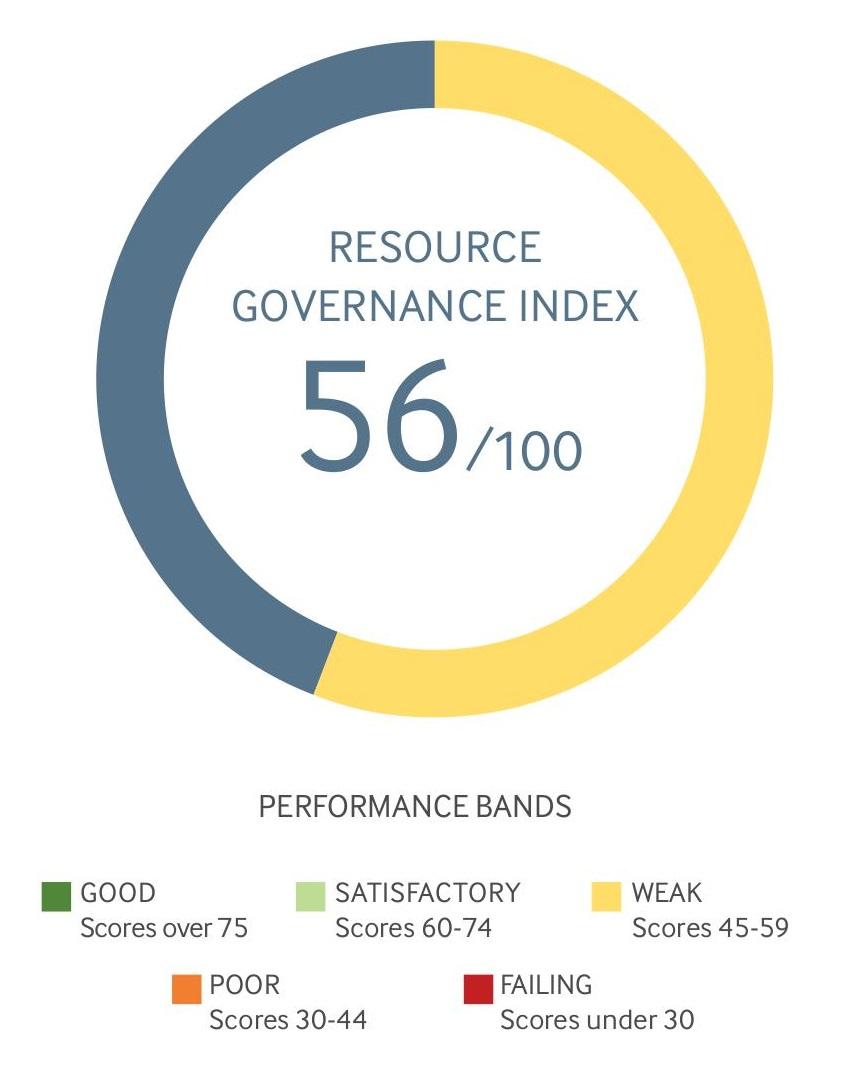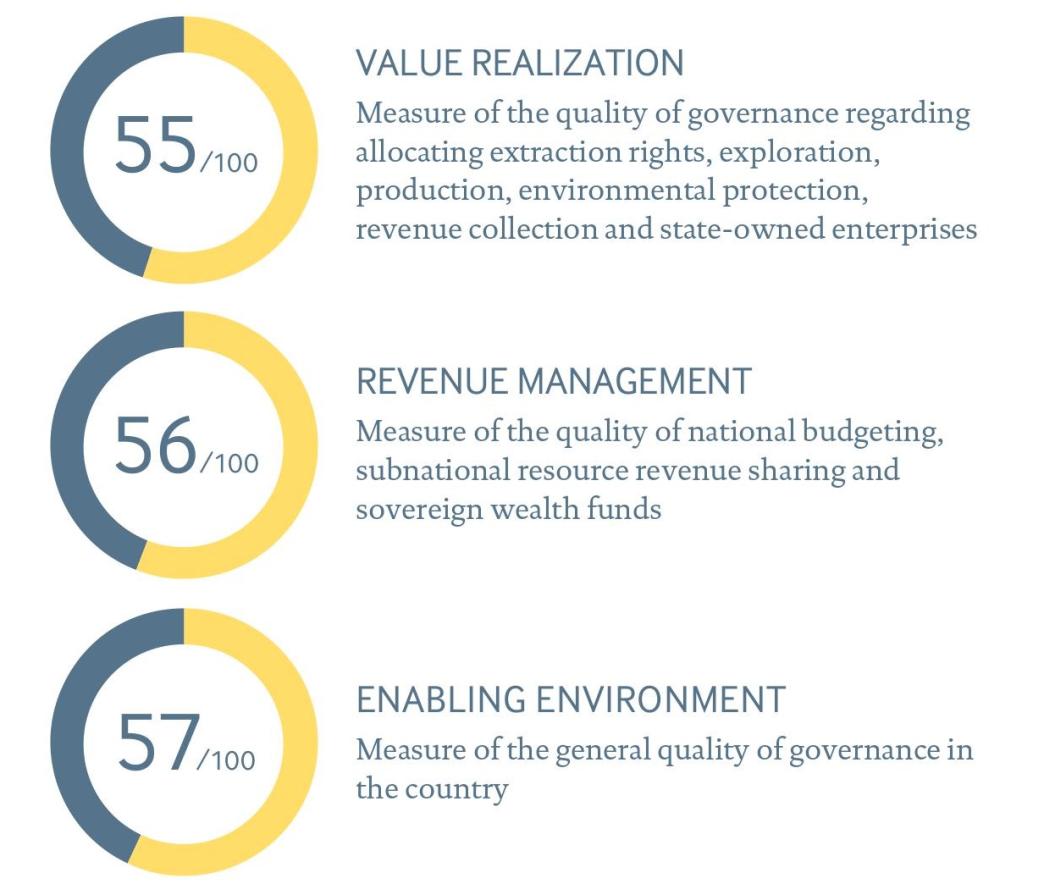
2021 Resource Governance Index: Guyana (Oil and Gas)
This briefing presents the results and recommendations from the 2021 Resource Governance Index for Guyana's oil and gas sector.
Guyana’s oil and gas sector has placed in the “weak” performance band of the 2021 Resource Governance Index (RGI), with a score of 56 out of 100 points. As a new producer, Guyana is still developing the institutional framework to successfully govern its oil and gas sector. With weakness evident in value realization, revenue management and the overall enabling environment, the government should prioritize the development of a robust resource governance framework, considering that production started in 2019 and is well underway.
Key messages
- The legal framework governing Guyana’s licensing process is cause for concern. Authorities have taken considerable time to disclose contracts, with negotiations and re-negotiations taking place behind closed doors.
- The absence of fiscal rules governing public spending merit attention; Guyana’s government should establish such rules as soon as possible.
- Guyana’s enabling environment is also weak. Government effectiveness and regulatory quality are problematic, but commitment to open data standards is the most concerning indicator, with a “failing” score of just 12 points. The governance of the sector, both in terms of successful policymaking and public accountability, would benefit from an adherence to open data principles.
- On the positive side, government manages local impacts of the sector in line with best practices; environmental and social impact assessments are publicly available.
Recommendations
- The Ministry of Natural Resources should expedite the update of the Petroleum Act, aiming for the adoption and enforcement of competitive and transparent licensing processes to build public trust and strengthen accountability mechanisms.
- The Ministry of Natural Resources should continue disclosing contracts and maintain an up-to-date registry of licenses in line with EITI commitments.
- The Ministry of Finance should lead a comprehensive redesign of Guyana’s fiscal framework and prioritize the adherence to a fiscal rule to prevent detrimental management of resource revenues.
- The National Assembly, the Ministry of Natural Resources, the Guyana Energy Agency and the Ministry of Environment should prioritize a consultative discussion around Guyana’s oil and gas sector and its role in the energy transition, to adapt the institutional framework to the challenges of the changing global environment.
- The National Assembly, the Ministry of Natural Resources and the Ministry of Finance should strengthen the Natural Resource Fund, to ensure transparent and accountable practices that contribute to successful revenue management. If the government decides to amend or repeal the related legislation, civil society actors and other stakeholders should be invited to actively participate in the process.
The 2021 RGI assesses how 18 resource-rich countries govern their oil, gas and mineral wealth. The index composite score is made up of three components. Two measure key characteristics of the extractives sector – value realization and revenue management – and a third captures the broader context of governance — the enabling environment. These three overarching dimensions of governance consist of 14 subcomponents, which comprise 51 indicators, which are calculated by aggregating 136 questions. For more information on the index and how it was constructed, review the RGI Method Paper.

